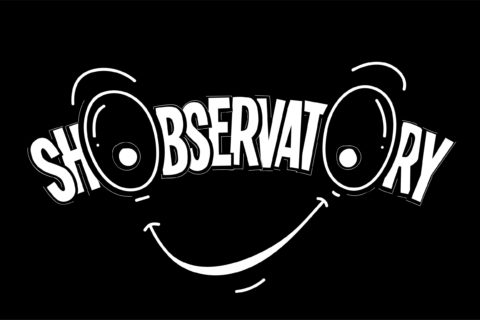We are all fond of saying that the insights industry and profession is going through rapid change – change that was present before, but has been accelerated by the current pandemic. And it’s true, so true that it is now almost a cliché. But with change come challenges. What follows is a personal list of the 10 top challenges that I believe the industry must face and resolve in the next five years. You may have a different Top Ten – and I would love to hear about them.
1. Tackling inherent bias in new technologies
AI and Machine Learning have not taken widespread hold in the consumer insights field as yet, but the interest is definitely there, and it is predicted that this will be ‘the next big thing’. But as we have seen in many other applications, such as HR recruitment and credit card limits, inherent bias is a significant issue. Very often, AI algorithms (and the machine learning that feeds off them) depend on historical data sets that, wittingly or unwittingly, contain biases. The danger is that these biases become embedded and then exaggerated as machines continue to learn from them. In an industry that is relied upon for key decisions across multiple commercial sectors, in government and by social foundations, the consequences could not only be negative but profoundly so. We need to educate all who are involved in building these systems to recognize biases, be aware of them and try and mitigate for them.
2. IP innovation
The last ten years have seen an explosion of technology innovation in both research and data analytics, fuelled by the infusion of an incredible $20+ billion of venture funding. Much of this has been very much for the good, increasing efficiency, speed, and scaling of insights that were, for the most part, out of reach only half a decade ago. We can point to things such as video analytics, operations automation, VR/AR and research app stores as having broadened our capabilities, reach and relevance. But what we have not seen is an equivalent explosion in research methodology innovation. With the exception of a few areas – mainly in qualitative and the advent of behavioural science – the methods we use date back forty to sixty years. We have merely made these methods more efficient, accessible and scalable. Isn’t it time to take a long hard look at how we truly can decode people’s decision-making, behaviours and beliefs?
3. Industry definition and identity
The insights industry isn’t suffering from schizophrenia, it’s suffering from multiple personality disorder. As I argued in a couple of recent articles, we appear to be fragmenting into a series of different tribes and we can’t even agree on the words that describe what we do. It’s time that we coalesce on a description that all of us can adhere to so that we can actually have a unique identity with which to present ourselves to the world. ESOMAR will be holding a Community Circle on this very subject on November 18th.
4. Codes of Ethics and Standards
As we begin to understand what unites us, we will have some very difficult decisions to make about what is and is not ethically acceptable in our profession. At present, both the ICC/ ESOMAR Code and national codes around the world draw a bright line between research and marketing. Not only do we see this as an ethical choice, but it has been a fundamental distinction that has served us well in our stance with governments and regulators. As data analytics, AI, attribution and machine learning become more and more prevalent in our online world, can that distinction stand? We need to decide on this in the very near future.
5. Fragmentation and modernization in education
As someone who has served on numerous advisory boards to university MSMR programs, I have become more and more concerned at how academia itself is feeding the fragmentation of our profession. In university after university, a line is being drawn between ‘market research’ and ‘business analytics’, with separate majors and Masters programmes for each. What’s more, many of the market research programmes appear to be stuck in the past where methodology is concerned and are still far too focused on process rather than outcomes. Our industry needs to engage with academia more robustly and bring the real world into their curricula.
6. Diversity and inclusion
Thanks to #BLM as well as industry initiatives such as WIRe, CORe and Color in Insights, this is an area that is now achieving much more attention than in the past. It remains true, however, that we have a long way to go to achieve real diversity (based on ethnicity, gender and sexual orientation) in the upper reaches of our industry, most especially on the supply side of the equation. What’s more, we are woefully lacking in achieving proper representation of marginalized communities in our work and have been ignoring new sampling methodologies in favour of those that are more convenient and less costly. This cannot continue.
7. Social involvement
Our profession can rightly claim to be the biggest repository of data and insights about human behaviour across the entire globe. Indeed, research on social issues accounts for more than $2 billion – but that is only about 2.5% of total insights expenditure (as of 2019). As the world faces enormous challenges (COVID, climate change, the rise of authoritarianism), it is arguable that our industry has a moral responsibility to inform governments, NGOs and the public at large about trends affecting their decision-making. Arguably, this should not just be in response to organisations commissioning us to do such work – we should be providing such insights as a duty. COVID has revealed that we can indeed perform such a function. As an industry, can we codify this into our mission?
8. Impact and accountability
Slowly but surely, insights professionals (especially in major corporations) are coming to the realization that they have to demonstrate real impact to their organizations if they want to be viewed as strategic partners, worthy of investment, and not just as a cost line item in the P&L. As of 2015, just 20% of insights functions fell into this category. With the advent of the pandemic, it’s possible that this has now crept up to 30%. Research has shown that there is an inextricable link between measuring the impact you have on your organization and the budget, resources and respect that you garner. Impact measurement, together with an orientation to insights activation, needs to be a major focus of education within our industry.
9. Global cohesion
In a world filled with challenges that ignore all borders, it is critical that the insights industry approach these challenges on a unified, global basis. Considerable progress has been made in the last few years as international and national associations have come together and collaborated; as alliances have been cemented; and with the efforts of bodies such as ESOMAR and GRBN. This effort needs to be continued and strengthened. There can be no room for division among representative bodies.
10. Preserving our history
The market research industry is now over 100 years old. From its origins with people such as Nielsen, Gallup and Roper to its rich development of techniques in the 1970s and 1980s to today’s advancements in technology, it has always been an industry of innovation, even though many seem to decry it as ‘resistant to change’. It has also been a force for good – it has brought the consumer into the decision-making process, informed governments and electorates alike, shone light on emerging trends, and guided politicians and corporations in times of change and stress. This history needs to be preserved. In the UK, there is an initiative called the Archive of Market and Social Research which is gathering an enormous repository of documents, interviews and other materials, codifying and digitizing them and making them available to scholars and the public alike. ESOMAR has a huge library of content from 1948 onwards which is available free of charge to all members and well worth accessing here. I believe other major markets and associations can and should do the same. For while it is true that a lot of our work can seem trivial, our overall impact on the world has been for the good and can continue to be so.



1 comment
I see a trend to believe in “mind hacking”: Neuro science, Behavioural Economics, etc. Our society is believing that we can understand human beings by applying scientific theories, methods and algorithms. Of course, this trend is driven by the “silicon valley” hype (Facebook, Google, Amazon, …) and their mindset, as well as by digital trends in general (martech, insight platforms, etc.).
We must change the way our clients are looking at the consumers: They should not see them as data points or (even worse) as programmable robots, but as human beings. A more respectful image of the consumer.
Let’s recall the fact, that a true understanding of human mindset and behaviour must be rooted in human intelligence, common sense and careful insights gathering.